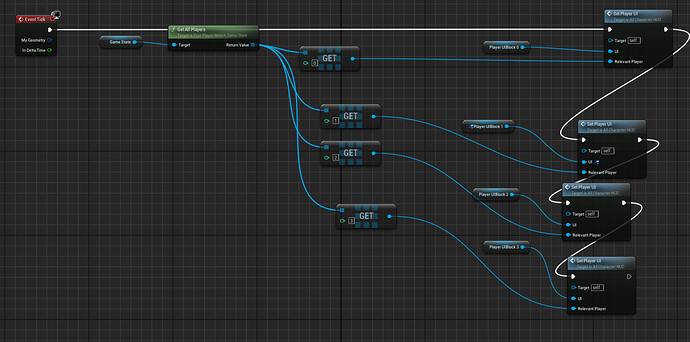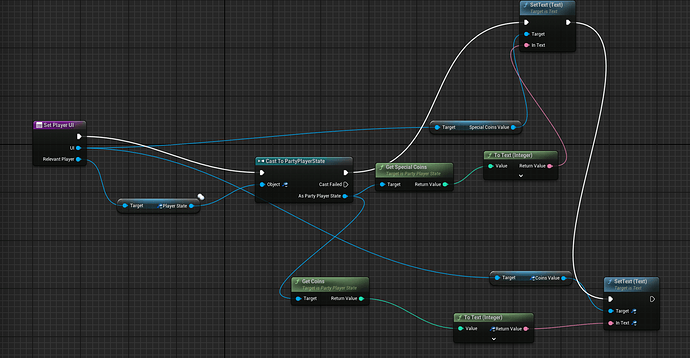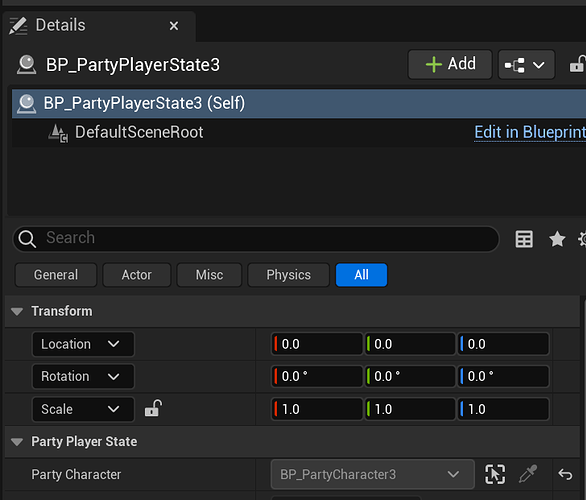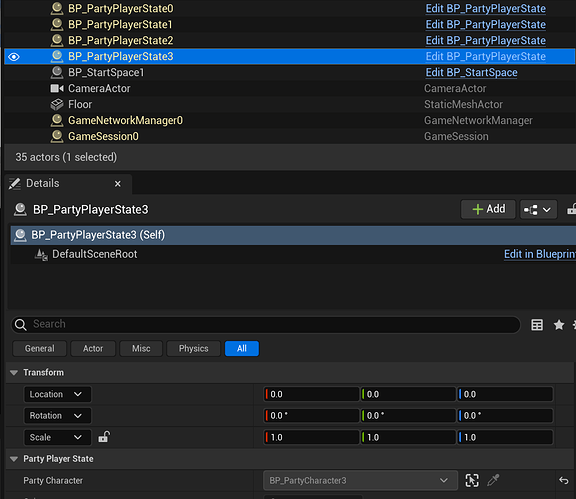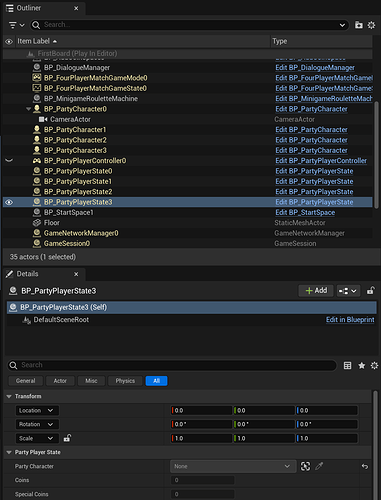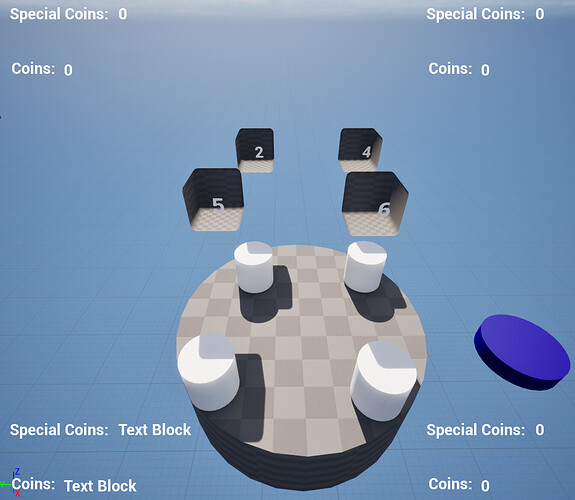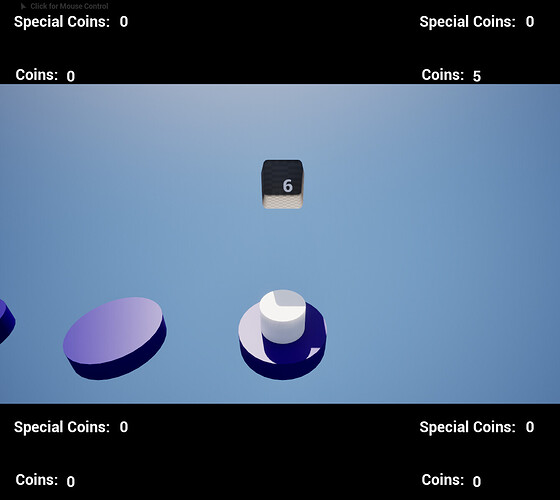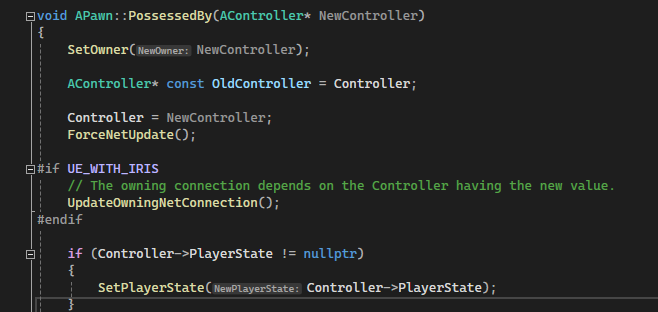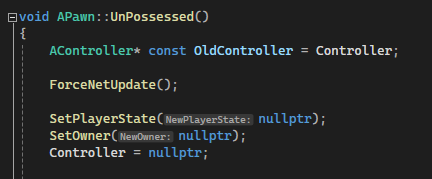Hi, I’m currently developing a “Mario Party” style of game. I’m making good progress, but I’m experiencing a bug with the UI.
My game board currently consists of a starting space for the player characters and three spaces I’ve designated to give you 5 coins.
Currently, here’s how the UI updates:
- After the first move, the player listed on the top-right of the UI has their coins set to 5.
- After the second, the player listed on the bottom-left of the UI has their coins set to 10.
- After the third move, the player listed on the bottom-right has their coins set to 15.
What I want to achieve is the behavior generally expected of games of this type – when the first player moves onto an “Add Coins” space the top-left coins counter increases by the specified value, when the second moves the top-right counter increases, etc.
The below BP is on the UI. PlayerUIBlock 0 corresponds to the top-left UI, 1 is the top-right, and so on:
SetPlayerUI is defined as:
PartyPlayerState is a straightforward C++ class that has int properties for SpecialCoins and Coins, and getters and setters for them.
Let me know what other code samples you might need. Thanks.
